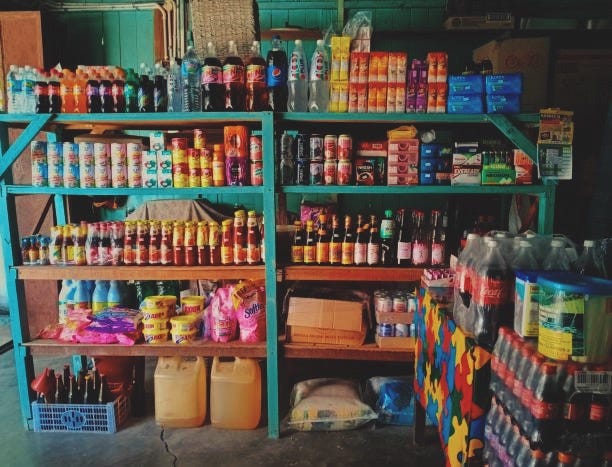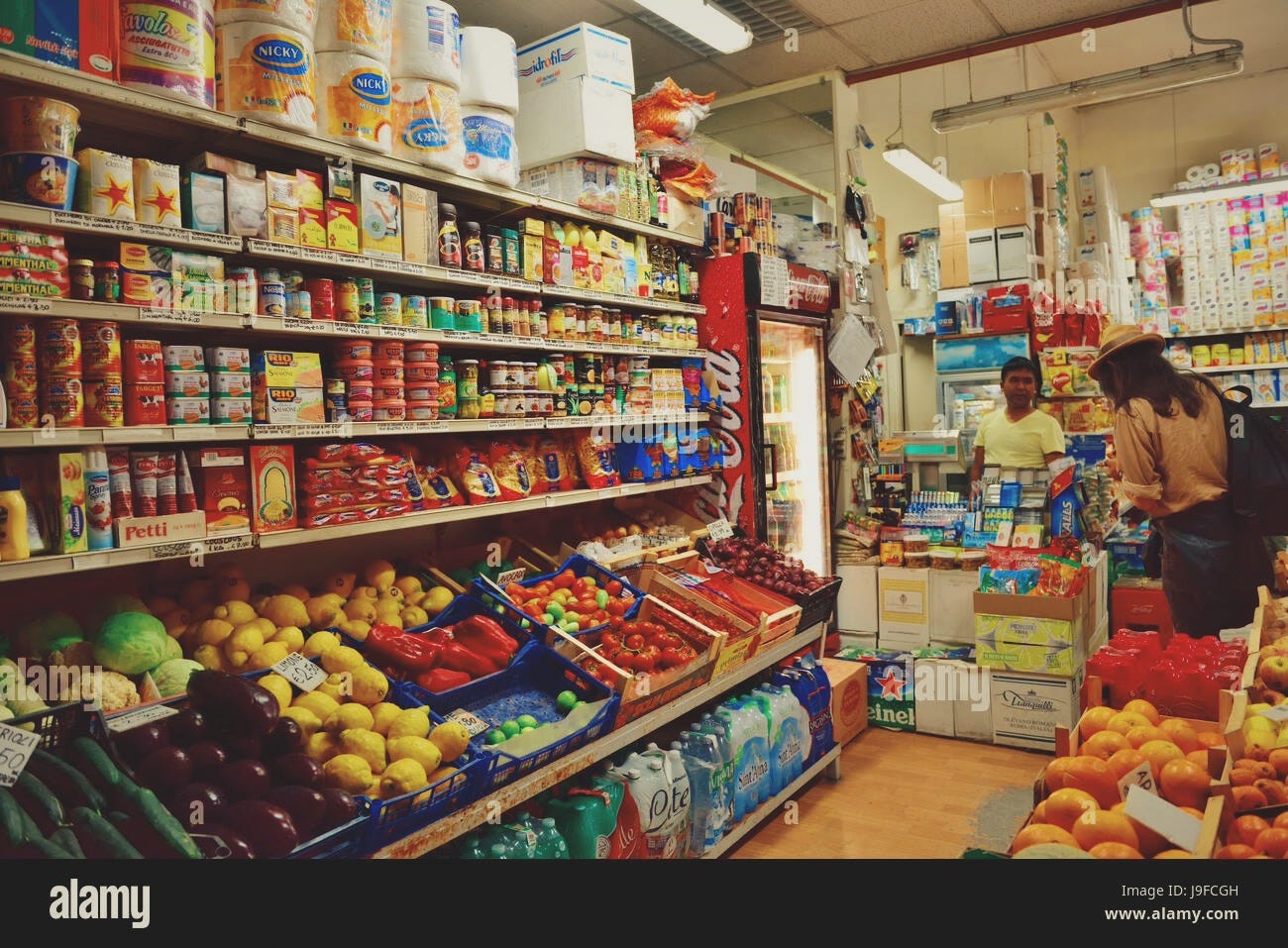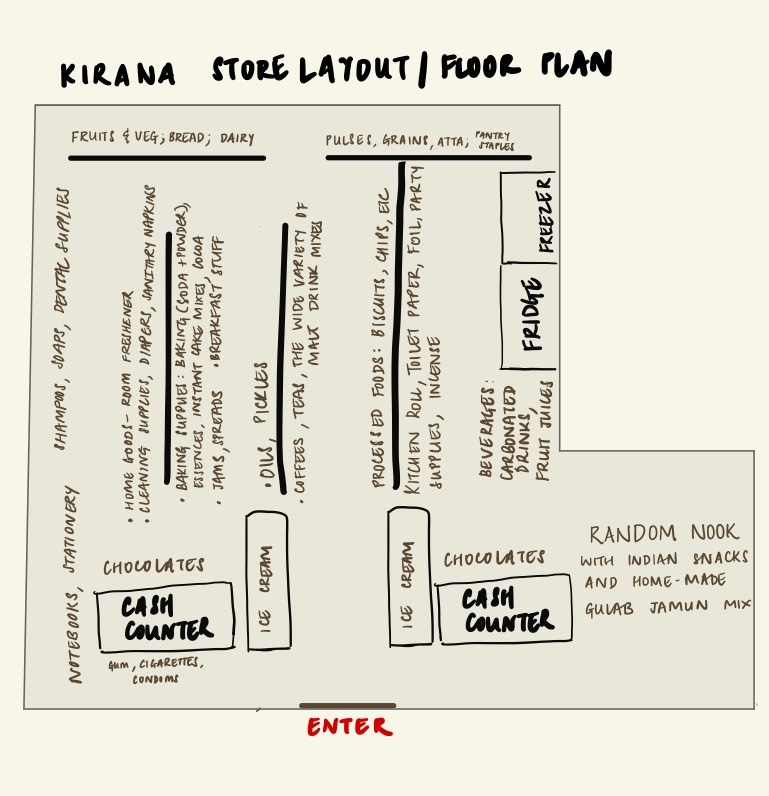
The simplest pleasure? Find yourself standing in the aisle between the soft drinks and juices to your right-hand side and kitchen rolls, foil, and paper cups to your left. Somewhere in the middle, underneath all the choices you might have to make, you’ll lay your eyes on a tiny bottle of MoguMogu. You browse through everything around you simply by looking at it all and reaching only for what piques your interest. You’ve been here a million times before (there’s nothing new), and yet the visit never disappoints. That’s all it takes. You look around the aisle and the organisation, somehow, makes sense. It makes enough sense that you can, as you would grope for things around your own kitchen in the dark, find your rhythm and way around. Once you’re inside, all troubles will cease to exist for as long as it takes to gather the items on your grocery list.
Read my essay on the woes of being an adult here
The kirana store holds a special place in my heart that no other grocery chain or supermarket could ever occupy. It is functional, stocked, and, most importantly, close by. I have vivid memories of being in these spaces. I think back to the one that was cramped with the bare necessities, and the other ones (some even growing into bigger chains) that even sold freshly baked goods. The first was owned by two Muslim brothers who took turns sitting at the front of the store. The second was the store where mum took my brother, Karan, and me on her grocery trips. These were probably just a ruse for her to buy the fresh rum balls that they made. While I can otherwise recall my memories with Karan, I don’t really remember us spending time together at these stores. I think grocery shopping, since childhood, has been a solitary activity for me, where I secretly scoured every row and dreamt of being able to indulge in everything that was awful for me. That less is more is undeniably overridden by the fact that there will always be more in less here: a tiny space that once had every single thing you could ever need. And, of course, more.
Inside a kirana shop the world stands still and moves at a glacial pace like the cashier. There’s the little boy who’s been helping here ever since you could recall; he’s grown a bit more, from being a teenager to now looking like an adult. He avoids your gaze, which means he recognises you. The saleswomen is talking someone’s ears off over the phone. The familiarity of the experience leaves you coming back routinely. Not only is it an escape, but also potentially the closest we might get to time travel. You can go when you’re ten, and then, again, when you’re twenty-five. The only thing that’s changed is you.
By design, these spaces are meant to save your energy and time (This rule does not hold when you’re in a rush and there are other people checking items out.). The store was built as a tool towards building community. There will be no big brand names—only the occasional improved peanut butter company that’s producing cleaner spread. The idea of a kirana store becomes ever-so important today—revolutionary, even—against our consumerist tendencies. It’s a reminder that regardless of how the times progress, and how much they can hold, you will simply want the same, basic few bits and bobs. You will still want to walk into a store (despite the conveniences of simply doing it online), feel the fruit that you’re picking out, check the expiry date, and just have it all done quicker than you can think about it.

Recent essays:
musings
On love









